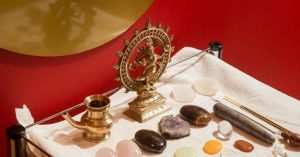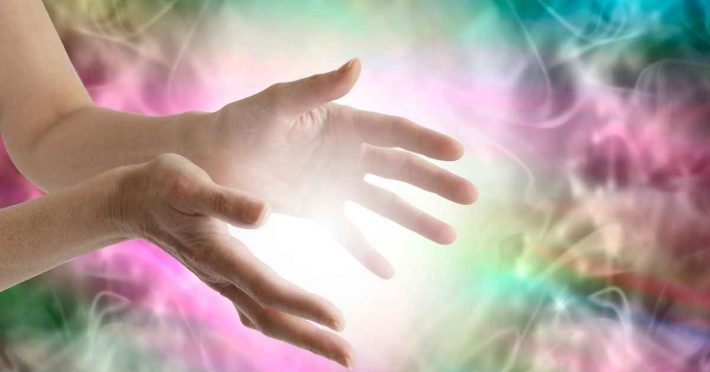First off, what is holistic healing?
Holistic healing is the practice of medicine that does not view a person as just a patient suffering from an ailment. Instead, it takes into consideration all the dimensions of a person – body, mind, and soul. The basic principle of a holistic approach to health is a harmony between the body, mind and soul of a person. Any imbalance in either of the factors can have a grave impact on the others. Holistic healing practitioners firmly believe that optimum health occurs there is a balance and a consequent uninterrupted flow of life energy through the body.
For example, if a person is suffering from chronic Irritable Bowel Syndrome (IBS), the holistic practitioner does not simply prescribe medication to treat the symptoms. Instead, they will try and examine all the plausible underlying factors such as food habits, sleep cycles or stress to understand the root cause of the problem. Only then do they prescribe a treatment plan. This comprises of not only medications to relieve the symptoms but also lifestyle modifications that target the resolution of the said root cause.
 How did holistic healing come into being?
How did holistic healing come into being?
Healing by its very nature was a holistic practice and finds its roots in ancient history. With the advent of the industrial revolution and modernization, medical sciences also progressed. A more pharmaceutical-based approach replaced the age-old traditions.
In recent years, however, people have started the journey back to their roots. People are open and more accepting of alternative or complementary medicine and its many benefits. It is becoming clearer that health care cannot be unidimensional and that it is multi-faceted.
As important as it is to care for our physical form by exercising, sleeping on time and eating well, it is also important to look after our mental health. Our emotional, intellectual, as well as spiritual well being is a pre-requisite to improved mental health. Holistic healing also acknowledges the interaction of humans with their external environment and the impact that it can have on our overall health.
Holistic healing also has a firm belief in self-healing. The human body is no short of miraculous. It is intelligent and it knows exactly what it needs. The body often communicates its needs in many subtle hints. It is ultimately up to us to pick up on the hints and empower our bodies to self-heal. Hippocrates, the father of modern medicine believed that when nourished and encouraged properly, our body can treat most illnesses without any need for external aid.
 Is there a chance for holistic healing therapies in health and medicine?
Is there a chance for holistic healing therapies in health and medicine?
Medical science evolved as humans did. Today, conventional medicine generally targets the disease and not the root cause. It can only help us recover from the symptoms and not heal the disease completely. This is the reason why more and more people are turning towards holistic healing. While medical sciences achieved new feats over the years, they left behind the holistic approach. Science overtook holistic healing and the focus on targeted intervention overtook the focus on the patient as a whole.
However, holistic healing is not a complete replacement for conventional medicine. For example, a cancer patient cannot completely stop the chemotherapy in favor of some traditional medicine that claims to cure cancer. But they can turn towards a holistic healer to cope with the effects of radiation on the body. This means that today, to enjoy optimum health, it is imperative to incorporate both, conventional and alternative medicine in our lives.
 What are the forms of holistic healing?
What are the forms of holistic healing?
There are many different types of treatments under one umbrella of holistic healing. They all have the same basic principle in common – overall health and well-being.
Typically, holistic health practitioners will take the following steps:
- Understand the patient’s lifestyle. It includes a thorough examination of the patient’s dietary habits, sleep patterns, work stress, family history of certain illnesses, etc.
- The doctor might also enquire about the patient’s spiritual beliefs.
- After being able to locate the point of concern, if any in the aforementioned factors, the doctor helps by educating the patient about any dietary or lifestyle changes, if required. These may be incorporating an exercise regime, eliminating or adding certain foods to the diet and spiritual counseling.
- If required, doctors may prescribe complementary therapies like acupuncture, massage therapy, aromatherapy, chiropractic therapy, etc.
- Depending upon the gravity of the ailment, prescribe the intervention of conventional medication and/or surgical procedures.
 Is holistic healing the future?
Is holistic healing the future?
We have evolved from nature and there is an innate bond between us and nature. This bond has suffered at the hands of modernization and the relationship is precarious now, more than ever. We must go back to our roots and take the 360-degree wellness approach to health.
There is still a long way to go before holistic healing becomes a part of the standard health care system. But in the meantime, we can ensure its relevance by empowering our bodies. Take control of your health and well being using the ancient wisdom and immense power of holistic healing and give your body the love and respect it deserves.





